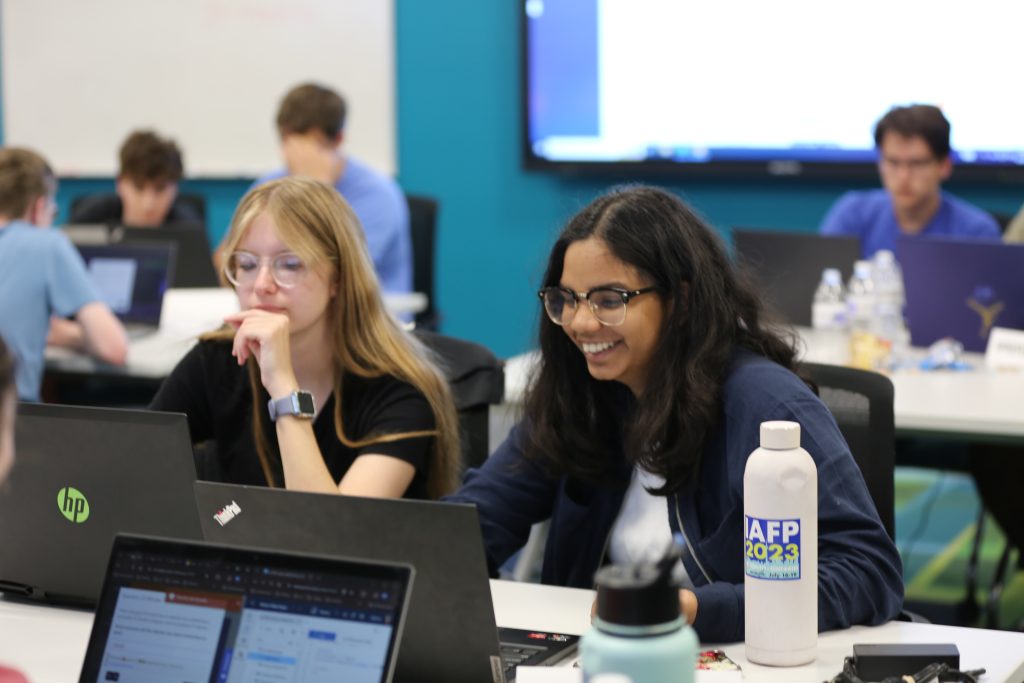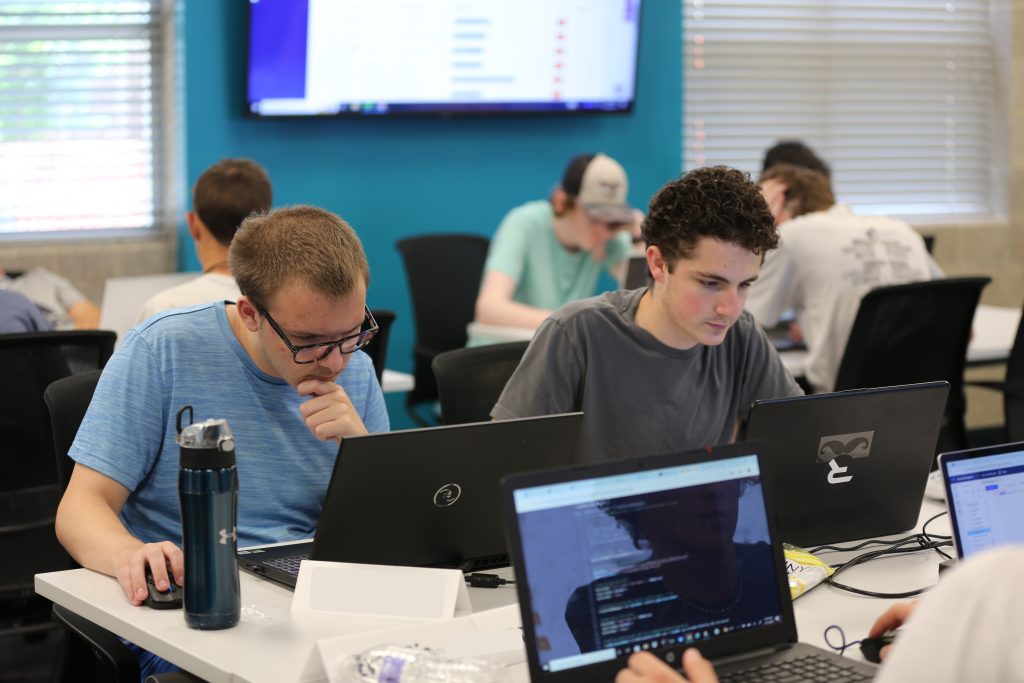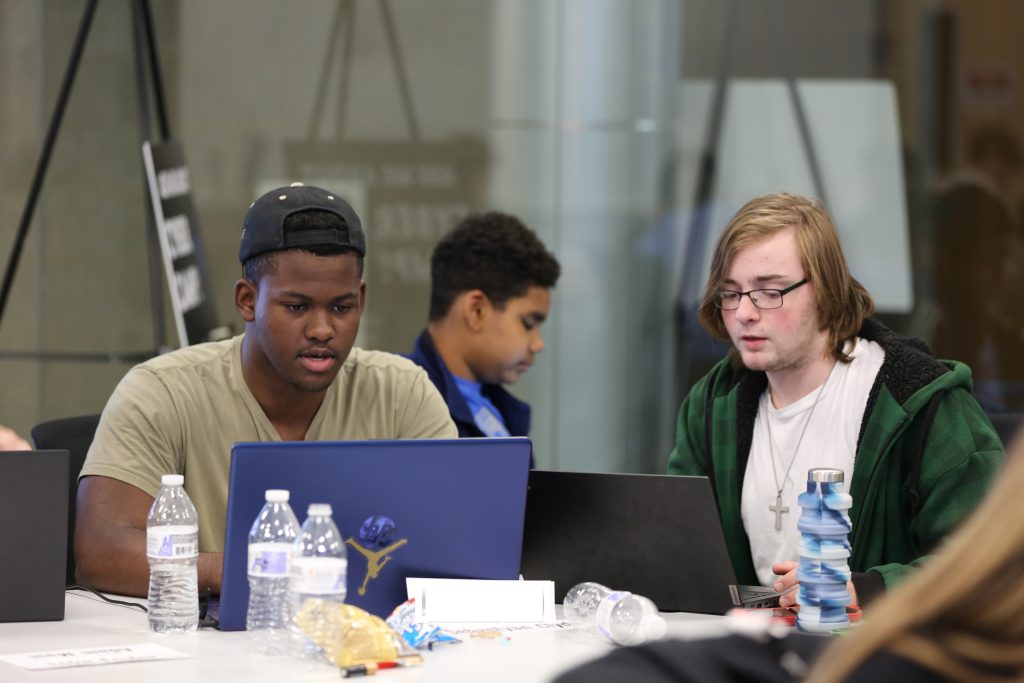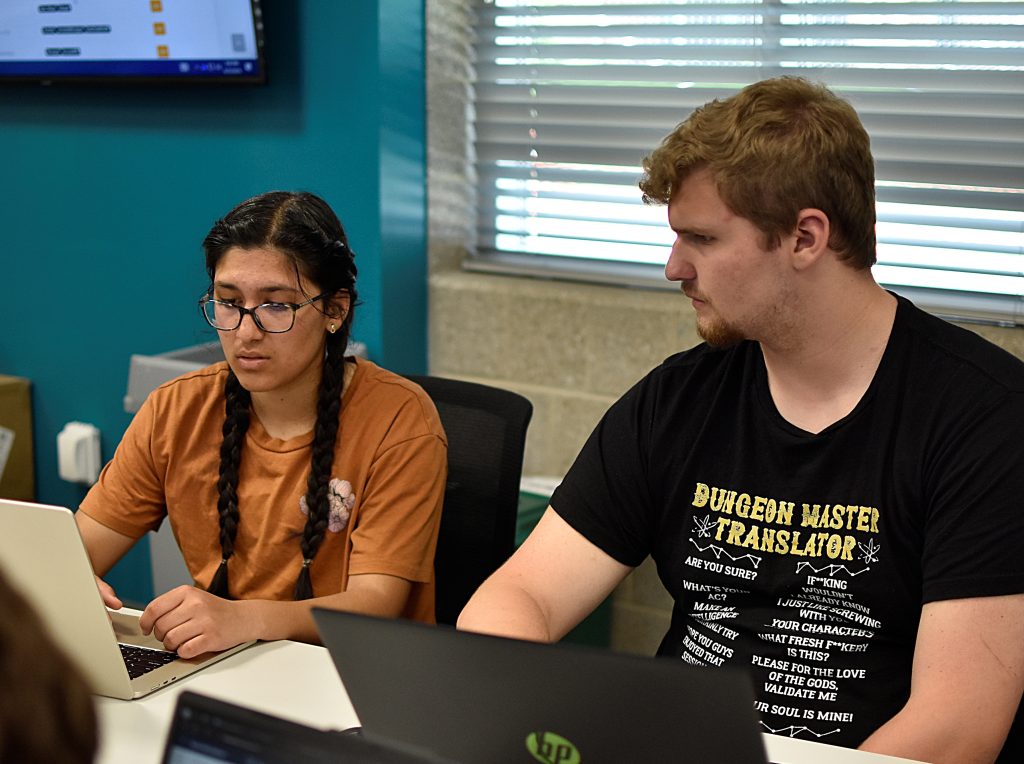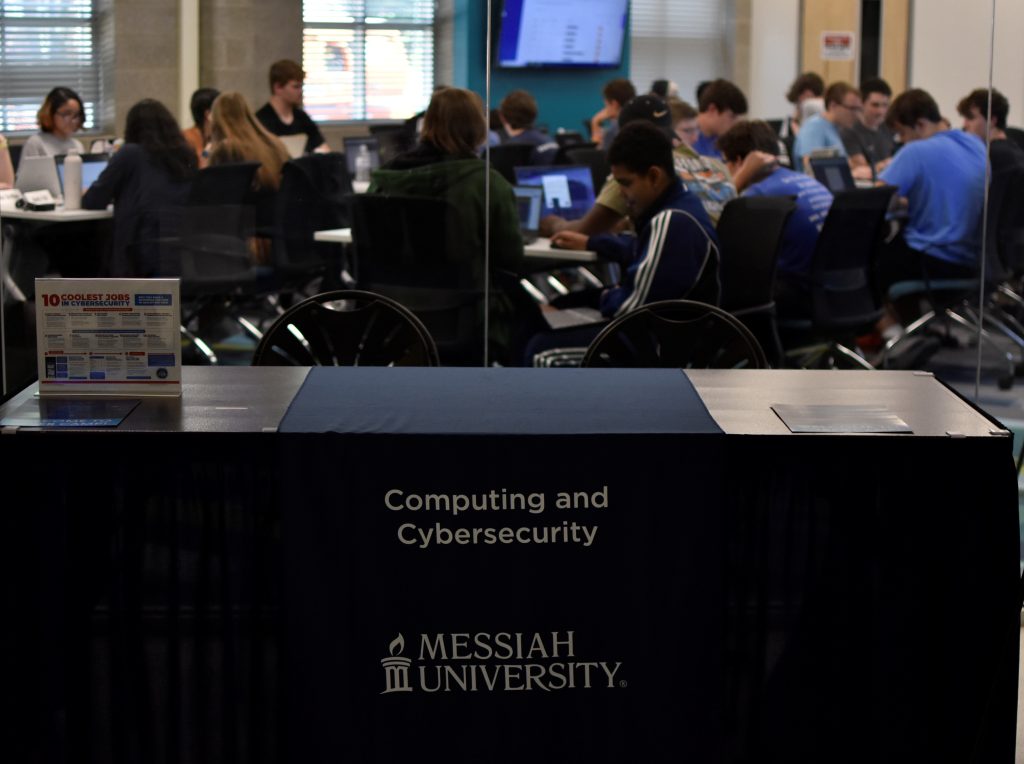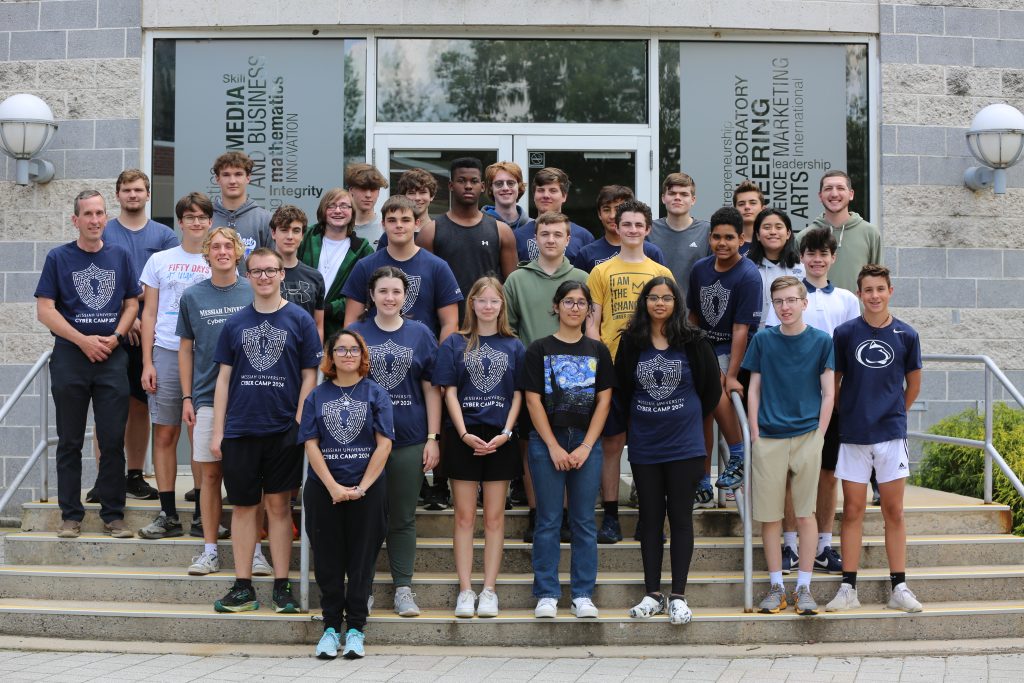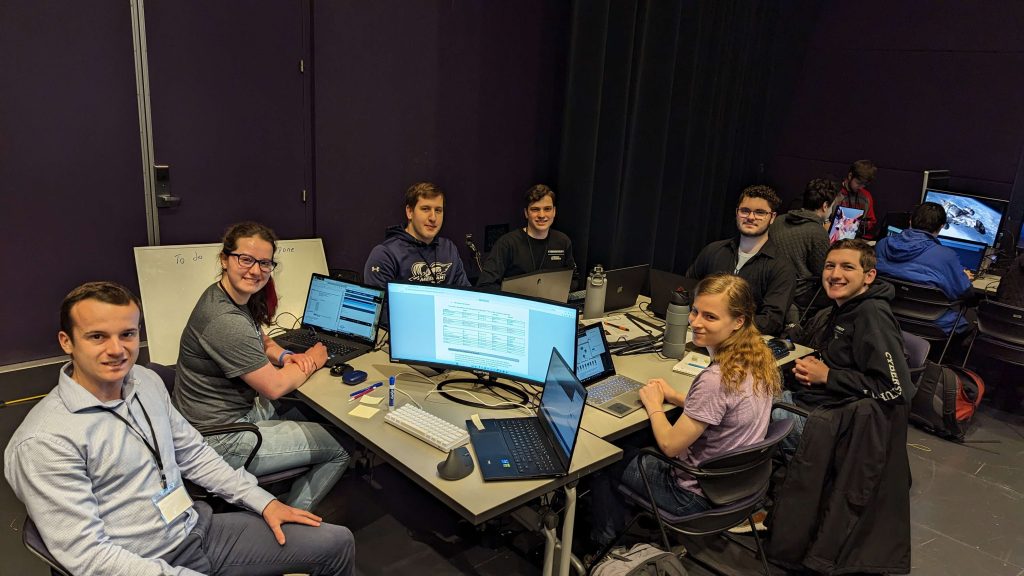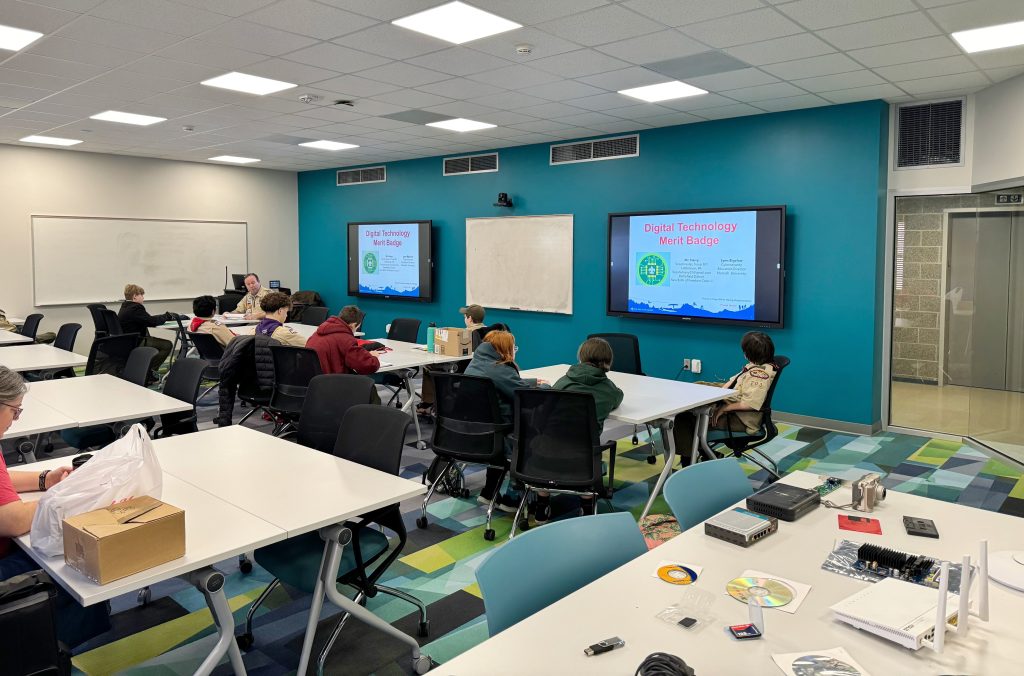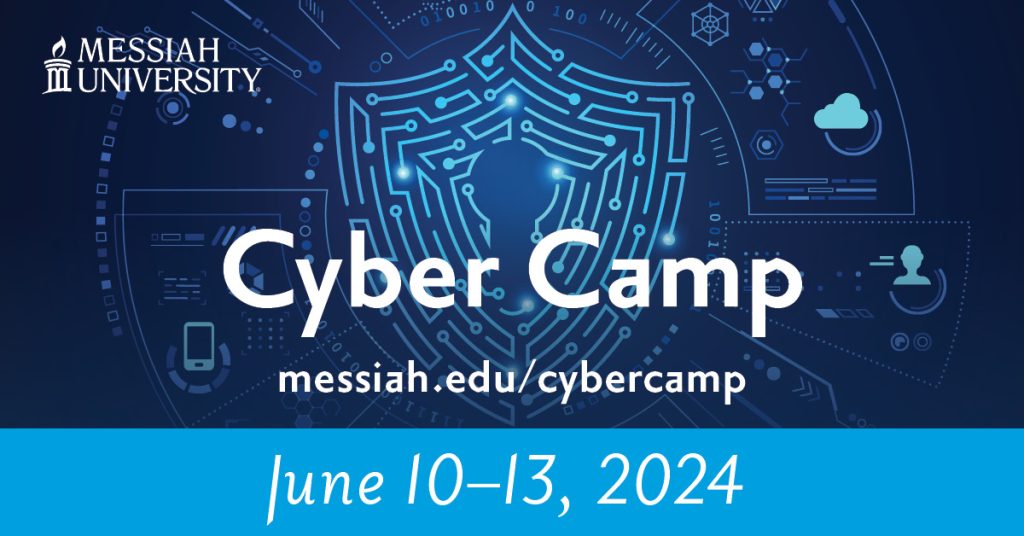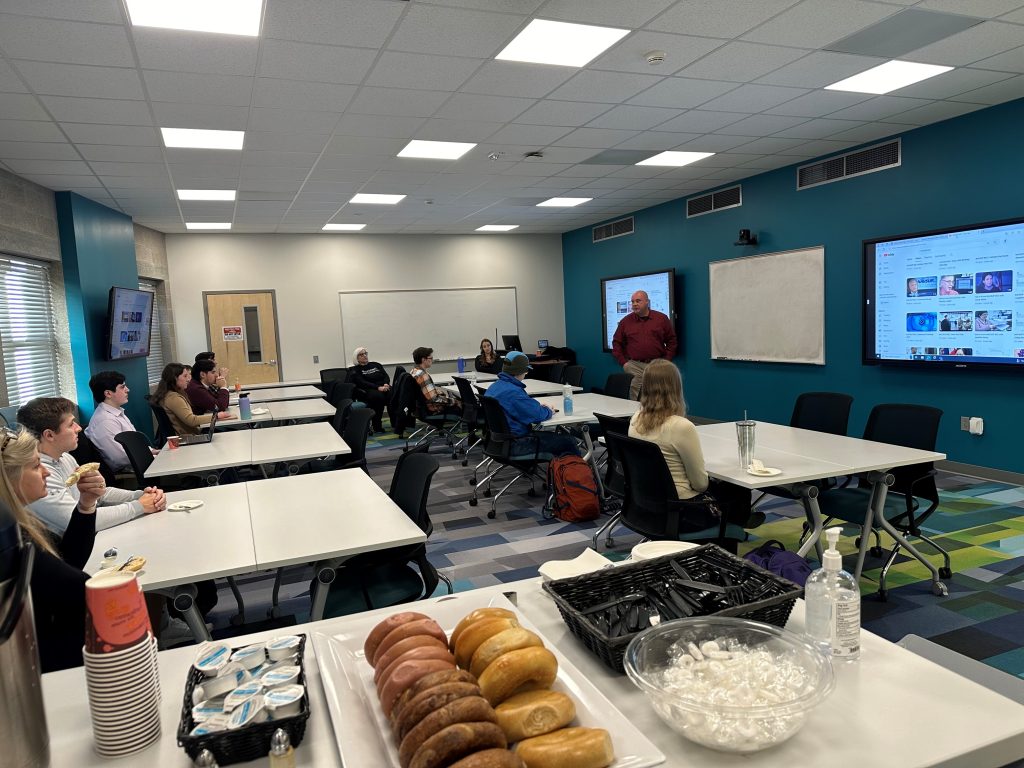We had the pleasure of once again hosting a classroom full of high school students for our annual Cyber Camp on June 10-13! Twenty-eight students came to learn about the foundations of cybersecurity and to get a small taste of college life on Messiah’s campus.
This year, we had several special guests join us from the cybersecurity industry. Representatives from the Navy Business Systems Center in Mechanicsburg joined us to talk about opportunities in the DOD. Jeff Man, information security architect and consultant who was part of the first penetration testing “red team” at NSA, spoke to us about cryptography. Director of Threat Intelligence at Mastercard, Sharon Flategraff, led us in a KC7 cyber gaming challenge. Allen Snook, Director of Information Security at Messiah University, gave us a tour of the Security Operations Center, where our interns work each semester gaining real-world cybersecurity experience. Allen was joined by two of our cybersecurity students, who spoke to us about their experience working in the SOC and guided us through several Graylog exercises to find network intruders.
The students seemed to enjoy hearing from our guests, learning new concepts such as network protocols and intrusion detection, and working on cyber gaming challenges. The games were a big hit, and proved to be a great way to expand students’ understanding of the concepts taught. We are already planning for more gaming challenges for next year, as well as other things to make Cyber Camp 2025 even more successful!
Thank you to all our students from Cyber Camp 2024 – you were what made this camp so great. We enjoyed spending time with you and we look forward to seeing how cybersecurity plays a role in your path moving forward. Thanks also to the parents for your support of us and of the students.
Enjoy some photos from this year’s camp!
